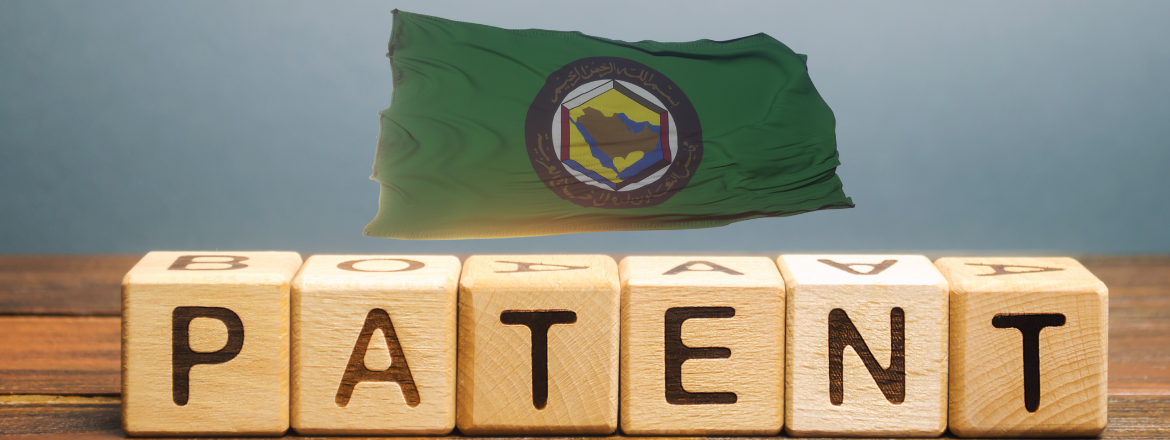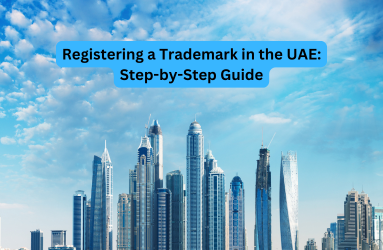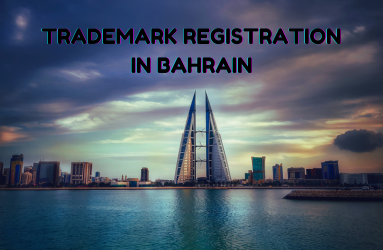Patent Registration in the GCC: Introduction
Through the GCC Patent Office (GCCPO), the Gulf Cooperation Council (GCC) provides a streamlined and uniform approach to intellectual property protection. This article explores the intricacies of GCC patents, providing insight into their nature, advantages, and guidelines for applying and obtaining one to propel your business venture within the GCC.
Understanding Gulf Cooperation Council Patents
The GCCPO is an incentive and collaborative entity, created for protecting innovations in the Gulf Cooperation Council (GCC). It had announced that it is accepting new filings of applications from Bahrain and Kuwait, followed by accepting applications from Qatar starting from July 1, 2023. However, as of now, Oman, Saudi Arabia, and the United Arab Emirates (UAE) have not disclosed their plans to be included in the unified system.
The GCCPO was established to improve efficiency and serve as the epicenter for patent applications in the region, assuring a consistent, streamlined process.
Benefits of Registering Patents within the GCCPO
-
Unified Protection Across Member States
A single GCCPO-granted patent provides seamless protection across all member states, making regional coverage easier for innovators and enterprises.
-
Simplified Application Process
Filing with the GCCPO directly eliminates the need to navigate various patent offices in each member state, simplifying administrative procedures.
-
Cost Efficiency
The consolidated application process and common examination by the GCCPO lead to cost savings compared to filing separate applications in each member state.
-
Consistent Examination Standards
GCCPO applies consistent standards for patent examination, ensuring uniformity in evaluating novelty, inventiveness, and industrial applicability.
-
Efficient Enforcement
Unified patents facilitate enforcement across member states, providing legal measures and enforcement options to protect the rights of patent holders.
-
Regional Collaboration and Innovation
The GCC patent system fosters collaboration and innovation within the region, offering an integrated platform for intellectual property protection.
-
Increased Legal Certainty
Standardized patent systems reduce legal uncertainties and complexities, promoting a smoother experience with national patent laws.
-
Potential for Economic Growth
A robust intellectual property system, including effective patent protection, promotes economic growth by encouraging innovation, attracting investment, and promoting technological advancements.
-
Alignment with International Standards
Even though the GCC Patent Office does not participate in accords such as the Paris Convention or the Patent Cooperation Treaty (PCT), it adheres to equivalent international standards.
This alignment is visible in the GCC governments' streamlined processes and consistent patent regulations. Collaborations with national patent offices and adherence to WIPO criteria demonstrate the office's dedication to global standards, leading to the acceptance of a unified patent system in the GCC.
-
Enhanced Regional Cooperation
The GCC patent system enhances regional cooperation in intellectual property matters, aligning with the broader goals of the Gulf Cooperation Council.
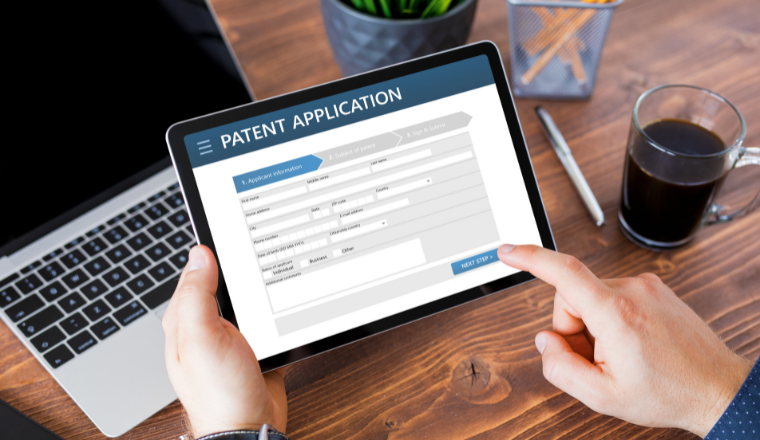
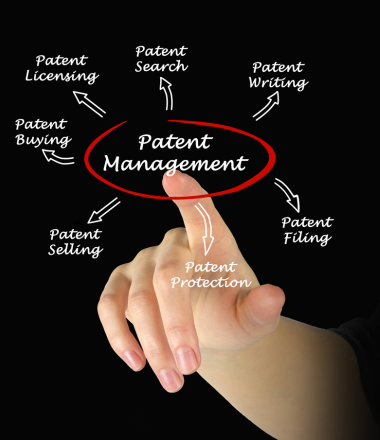
Guidelines for GCC Patent Application
Requirements
When applying for a patent through the GCC Patent Office website, it is crucial to adhere to the following general guidelines to ensure a smooth and compliant application process.
Submission of Documents
All required documents, including the Patent Request form and relevant enclosures, must be attached to the application upon submission. Failure to attach necessary documents may require a written pledge to submit them within a specified timeframe.
Submission in Arabic
All patent applications, including the Patent Request form, details about the invention, and relevant enclosures, must be submitted in Arabic. This aligns with the official language requirements of the GCCPO. Alternatively, documents written in languages other than Arabic must be accompanied by certified translations into Arabic.
Proper Page Numbering and Compliance
It is essential to properly number all pages of the application.
Formulating the proper Documents
The invention must be expressed coherently in a Microsoft Word document. Prepare both hard and soft copies.
Document Authentication and Deposit Payment
Along with the original or fully authorized copies of the patent application's documents, deposit payments are prerequisites for the application's processing. Effectively navigate the fee payment process for GCC patents by utilizing specified bank channels that are found on the website.
Exclusion of Inventions
The Commercial Cooperation Committee has the authority to exclude certain inventions from obtaining a patent if necessary to protect public order, morals, or environmental well-being.
Recording Submission Date
The GCCPO records the date of submission of the patent application after verifying that the conditions stipulated in the Law and Executive Regulations are met.
Correspondence with the Office
All correspondence with the GCCPO must be in writing and addressed to the office according to the specified postal address. Personal presence is not required, and communication can be conducted through accepted written means.
Submission of Paper Documents
Ensure compliance with regulations by submitting all essential documents to the GCC Patent Office. This submission can be conducted either in person or through a secure registered mail channel, providing flexibility to applicants. Information related to mailing addresses and contacts can be found on the website.
The Internal Stages of a Patent Application
Filing Patent Application
The filing of a patent application is the first step in obtaining protection for an innovation under the Gulf Cooperation Council. It entails making a detailed request to the GCC Patent Office using the Protection system.
Following submission, the application is extensively reviewed to ensure that it fits the basic conditions established in the GCC Patent Law and its Executive Regulations. The application is subsequently given a unique file number and date, which will be used to track its progress throughout the patent granting process.
Formal Application Examination
This stage entails a deep examination of all legal and technical papers involved with the patent application. This dual evaluation guarantees that the application follows the legislative framework while also fulfilling the GCCPO's technical standards.
A notice is provided to the applicants if there are any defects or non-compliance with the prescribed conditions. This notification provides a clear overview of the issues that have been identified, offering applicants insight into the areas that require attention.
Applicants are given a three-month deadline to correct any problems that have been found. During this time, they can correct any flaws and improve the overall quality and compliance of the patent application.
Invention/Patent Examination
The GCCPO conducts a detailed search and examination at this stage. This is done to ensure that the basic patent-granting conditions, such as novelty, inventive step, and industrial applicability are met. A thorough evaluation of prior art is conducted to determine the uniqueness and inventiveness of the proposed invention.
Publishing and Granting a Patent
The GCCPO gives a formal decision to grant the patent after the patent application meets all legal requirements and passes the examination step. Following the publishing decision, the patent is granted, making the specifics of the invention public.
Three months following its publication, the applicant obtains the issued patent. This time frame allows for any potential opposition to be raised. If no opposition is filed within this time frame (3 months), the patent is finalized, giving the inventor exclusive rights and legal protection over the patented invention throughout the GCC region.
Conclusion
Navigating the GCC patent environment provides a strategic channel for innovators and enterprises seeking streamlined intellectual property protection throughout GCC member states. The GCC Patent Office provides a uniform platform that simplifies the application process, lowers costs, and ensures consistent examination standards.
Abou Naja Intellectual Property stands as a trusted partner as innovators embark on this journey, providing experienced assistance and support throughout the intricate aspects of patent filing.
We invite potential patent applicants to commence this transformative journey with confidence, thanks to a commitment to transparency, adherence to guidelines, and a wealth of knowledge.
With Abou Naja Intellectual Property on your side, you can secure your invention, develop regional collaboration, and realize the full potential of your intellectual property. Get in touch with us at [email protected] for a complimentary consultation.
Frequently Asked Questions
What is the GCC Patent Office (GCCPO), and how does it contribute to intellectual property protection in the Gulf Cooperation Council (GCC)?
The GCCPO is a collaborative entity established to protect innovations in the GCC. It offers a streamlined process, ensuring a consistent approach to patent applications and granting unified protection across member states.
Which countries within the GCC currently accept new patent filings through the GCCPO, and what is the significance of this unified system for patent protection?
As of now, Bahrain, Kuwait, and Qatar accept new patent filings through the GCCPO. The unified system simplifies administrative procedures, providing innovators with seamless protection across member states.
What are the key benefits of registering patents within the GCCPO, and how does it streamline the process for innovators and enterprises?
Benefits include unified protection, simplified application processes, cost efficiency, consistent examination standards, efficient enforcement, regional collaboration, increased legal certainty, potential economic growth, and alignment with international standards.
What are the guidelines for submitting a patent application through the GCC Patent Office?
All documents, including the Patent Request form, must be submitted in Arabic. Documents in languages other than Arabic require certified translations. Proper page numbering, document formulation, and adherence to specific financial procedures are essential.
How does the GCCPO ensure consistent examination standards for patents, and what are the advantages of a unified patent system across member states?
The GCCPO applies consistent standards for patent examination, ensuring uniformity in evaluating novelty, inventiveness, and industrial applicability. A unified system simplifies administrative processes, leading to cost savings and streamlined procedures.
Can you provide an overview of the patent application process, from submission to the final granting of a patent, as conducted by the GCC Patent Office?
The process involves filing the patent application, formal application examination, invention/patent examination, publishing and granting a patent. The GCCPO ensures compliance with legal requirements and provides a three-month opposition period.
What are the general requirements for patent applications, and how can applicants ensure a smooth and compliant application process?
All required documents must be attached to the application, submitted in Arabic, and adhere to proper page numbering. Timely submission, authentication of documents, and adherence to specific procedures for document submission and fee payment are crucial.
What role does the Commercial Cooperation Committee play in patent exclusions, and under what circumstances can certain inventions be excluded from obtaining a patent?
The Committee has the authority to exclude inventions if necessary to protect public order, morals, or environmental well-being.
How does Abou Naja Intellectual Property support innovators in navigating the GCC patent environment, and what services does it offer to assist with the patent filing process?
Abou Naja Intellectual Property offers experienced assistance and support throughout the patent filing process, ensuring transparency, adherence to guidelines, and a wealth of knowledge to help innovators secure their inventions within the GCC.

